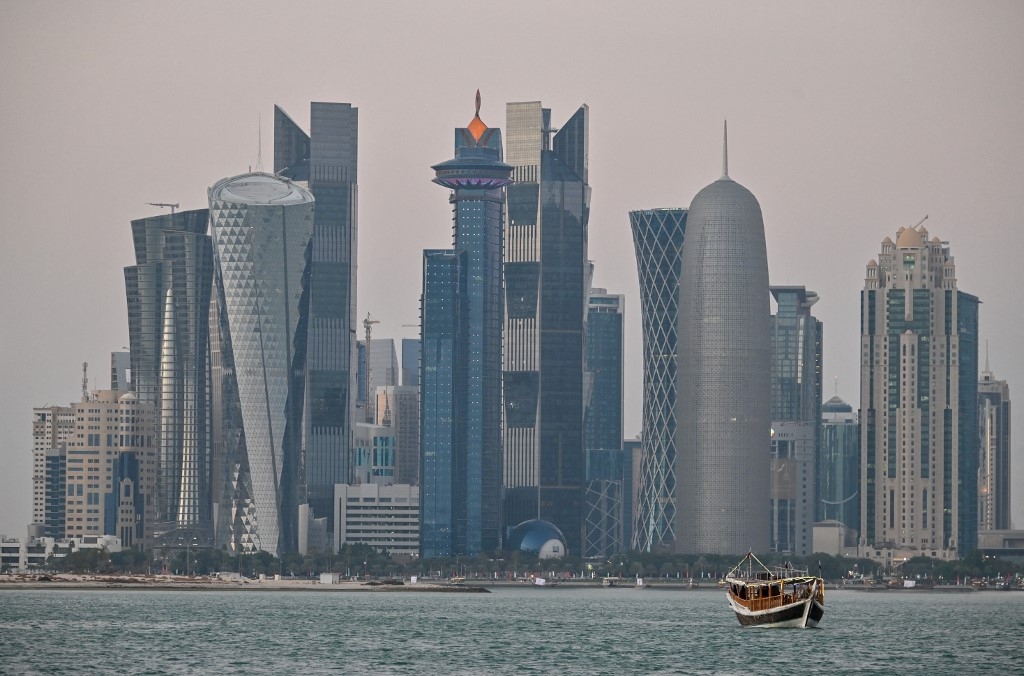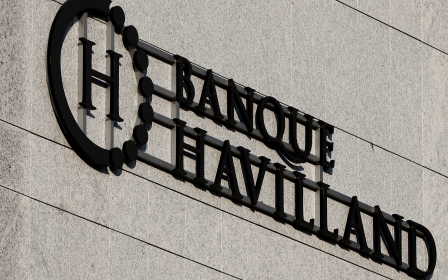Hotel workers in Qatar facing abuse in run up to World Cup, report says

Luxury hotel brands in Qatar have failed to protect migrant workers against labour abuse ahead of the 2022 Fifa World Cup, a London-based NGO said in its annual survey published on Wednesday.
The Business and Human Rights Resource Centre reported that migrant workers in the hotels suffer from "extortionate recruitment fees, discrimination and being trapped in a job through fear of reprisal and intimidation".
After inviting 19 hotel companies, representing more than 100 global brands with more than 80 properties across Qatar to participate in their survey, the Resource Centre found that there is a "widespread lack of action by hotel brands to prevent and exclude forced labour".
"Our findings should make for troubling reading for the national football teams and one million visitors who are planning a joyful month of sport in Qatar in November 2022, but not at the expense of workers' misery," the report said.
"It should also be a red flag for corporate sponsors of the World Cup. Huge profits are set to be made by the multinational and national hotel brands which will host these visitors."
In interviews with workers at the participating hotels, the Resource Centre found that eight out of 18 workers reported being charged high recruitment fees for jobs, while 10 out of 18 workers interviewed from Africa or Asia also said their pay and position were dependent on nationality.
Subcontracted workers said they received "substantially less pay for the same work and were subject to the most serious abuses, including passport confiscation and delayed wages with illegal deductions".
To host the Fifa World Cup in November 2022, Qatar has massively grown its hotel industry, preparing an additional 26,000 hotel rooms to support the influx of players, supporters and the media.
Migrant workers from East Asia, South Asia and Southeast Asia make up the vast majority of the workforce in the hospitality sector.
Qatar’s preparations to hold the football tournament have been mired by concerns over human rights violations and the mistreatment of migrant workers building the infrastructure for the biggest football event in the world.
Labour reforms
In response to the report, the Qatari government said it "takes a zero-tolerance approach against violating companies, issuing harsh penalties including prison sentences".
"Qatar has introduced a raft of major reforms to improve labour standards and protect the rights of all workers," the Government Communications Office (GCO) said in a statement, as reported by Al Jazeera.
In August 2020, Qatar announced changes in its labour laws, including scrapping the no-objection certificate that forced workers to ask their employers permission to change jobs. Earlier this year, Doha also introduced a new minimum wage law for foreign workers.
The International Trade Unions Confederation (ITUC), which has repeatedly criticised Doha for rights abuses against migrant workers, said last year that the situation for these workers had significantly improved following the reforms.
Still, the report said that workers were not able to freely change jobs despite the landmark reform of the Kafala system, which tied workers to their employers, preventing them from changing jobs without their permission.
Almost all workers reported being scared to request to change jobs when they saw a better opportunity, some fearing the hotels would have them deported.
Doha added that it takes all reports of abuse and mistreatment in the country’s labour market seriously, and called on workers to file complaints with authorities.
"Awareness-raising initiatives have been launched to provide workers with information on how to raise complaints against their employer, and new mechanisms have been introduced to facilitate access to justice," the GCO said.
"With new laws and stricter enforcement measures in place, the government is clamping down on labour abuses, including those in the hospitality sector. Shifting the behaviour of all companies will take time, but Qatar is winning the battle against those who think they can bypass the rules."
Middle East Eye delivers independent and unrivalled coverage and analysis of the Middle East, North Africa and beyond. To learn more about republishing this content and the associated fees, please fill out this form. More about MEE can be found here.






